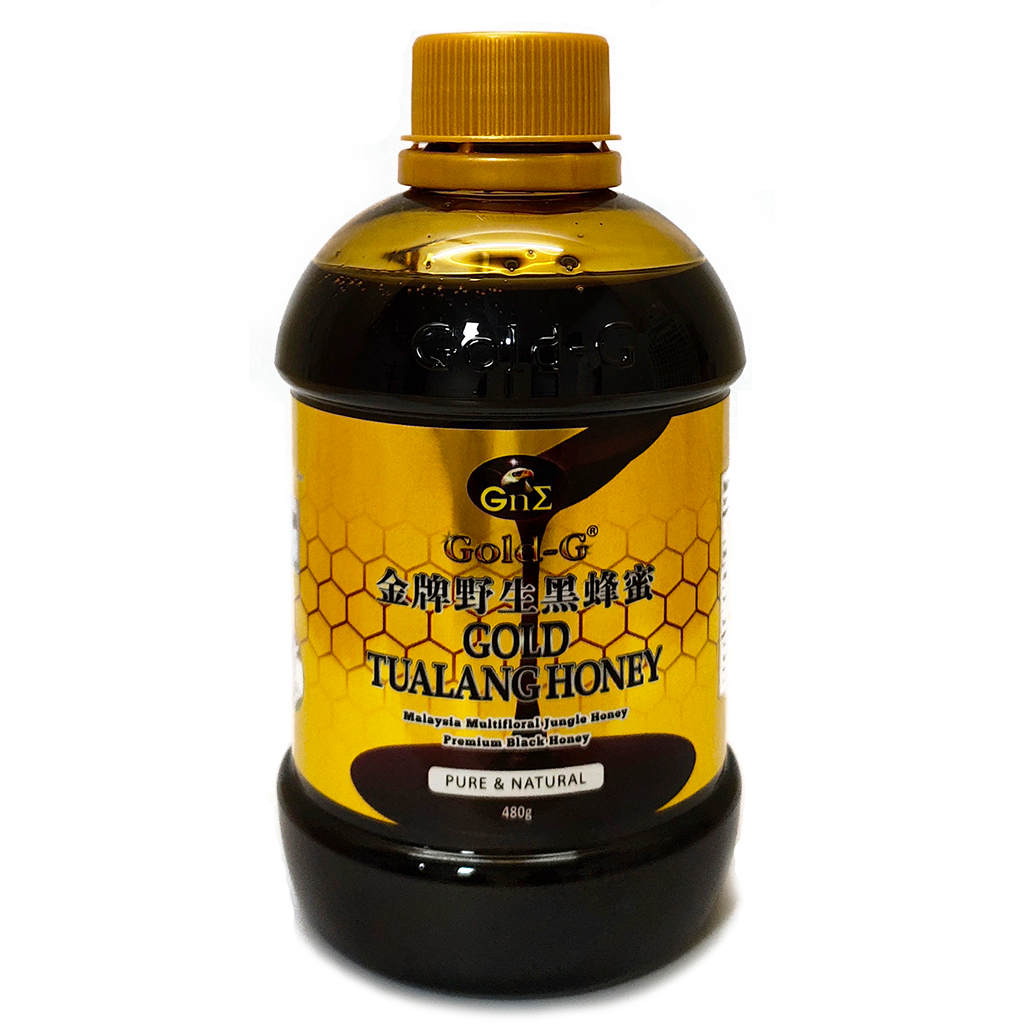Honey is a healthier choice when compared to table sugar.
- Honey has a lower Glycemic index compared to table sugar
- Honey is more nutritious than table sugar
- Honey contains active compounds that may provide several health benefits

First, honey generally has a lower Glycemic index (GI, a value to measure how much carbohydrate foods increase the blood sugar levels) compared to table sugar. The GI value of table sugar is 60, while honey is 58. A higher GI value indicates the more rapid the food increase blood glucose, therefore the impact of honey on blood glucose is lower than sugar.
Second, table sugar is mainly composed of sucrose (glucose to fructose ratio 1:1), while honey is more nutritious whereby besides the major fructose and glucose content, it also contains minerals, vitamins, phenolics, and antioxidants.
Third, the active compounds contained in honey provide various health benefits such as antioxidant, anti-inflammatory, anti-bacterial, as well as cough-reducing, and wound healing effects.
Hence, when compared to table sugar, honey is definitely healthier. However, honey still consists of sugars, and excessive intake of sugars may harm the body’s health, therefore, it is suggested to consume honey in moderation (eg. not more than 2 tablespoons per day).
Gold-G® Health Food Series
Gold-G® Gold Tualang Honey:
Gold-G® Gold Tualang Honey is a raw and natural honey produced by the Asian Rock Bee, Apis dorsata. It is 100% pure and undergoes minimal processing, with only straining to remove larger particles such as bees, leaves, and honeycomb flakes. It is then directly bottled in a GMP certified factory, allowing it to retain its natural friendly bacteria, propolis, pollen grains, phytonutrients, phenolic acids, and flavonoids. In addition to its natural taste and aroma, it offers higher nutritional value and stronger therapeutic effects compared to processed honey!
Click the link below for direct purchase.
References:
- https://www.ncbi.nlm.nih.gov/pmc/articles/PMC5817209/
- https://www.sciencedirect.com/science/article/pii/S1319562X16301863
This website does not provide medical advice. The content of this website, such as graphics, images, text and all other materials, is provided for reference and educational purposes only. The content is not meant to be complete or exhaustive or to apply to any specific individual’s medical condition. Always seek the advice of your doctor or other qualified health provider regarding a medical condition.





